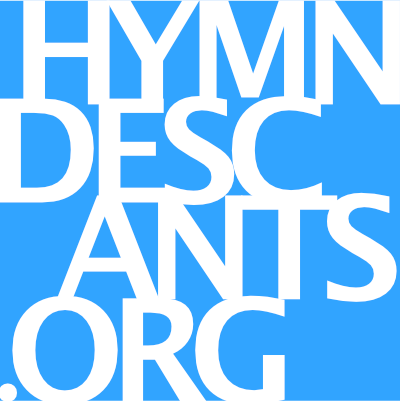AUDIO: brief intro - hymnal verse - ad lib organ bridge - descant verse Free score.
1 hymnal
Hail to the Lord's Anointed,
great David's greater Son!
Hail, in the time appointed,
his reign on earth begun!
He comes to break oppression,
to set the captive free;
to take away transgression,
and rule in equity.
2. descant
O'er every foe victorious,
he on his throne shall rest;
from age to age more glorious,
all blessing and all blest;
the tide of time shall never
his covenant remove;
his Name shall stand for ever,
his changeless Name of Love.
This German folk tune appeared in the early 1600's and from the outset has enjoyed a vibrant life, and to this day is still sung in its original form. The title translates to "There flew a little forest bird," with the forest bird standing as a metaphor for a lost or secret love, who flies to a woman grieving a lost love in her cottage. Some consider the woman an allegory for Mary, noting the profoundly militant Protestant culture of many of the German principalities at that time which would have prohibited open devotion. In some hymnals, such as Hymnal 1940, the title of this tune is rendered as WOODBIRD. The tune was given its hymnal form by George Ratcliffe Woodward in 1904, appearing in Songs of Syon.
Hail to the Lord's anointed is a paraphrase by James Montgomery of Psalm 72 ('Give the king thy judgments') and first published in an 1821 leaflet entitled Moravian Ode, rendered in eight stanzas. Montgomery was the son of Moravian missionaries, and after a zig-zaggy early career, established himself as the editor of a social justice weekly, which tenure endured 31 years. Government authorities occasionally found him too politically radical and twice jailed him, affording him time to write some of his poetry. Hail to the Lord's anointed takes an eschatological tack, and looks for Christ's final victory over every foe and throne, to establish an everlasting reign "all blessing and all blest."
Sources and further reading
Hail to the Lord's anointed
(WOODBIRD)
Descant text:
O'er every foe victorious,
He on his throne shall rest;
From age to age more glorious,
All blessing and all blest:
The tide of time shall never
His covenant remove;
His Name shall stand forever,
His changeless Name of Love.
– adapt. fr. Moravian Ode, James Montgomery, 1821

